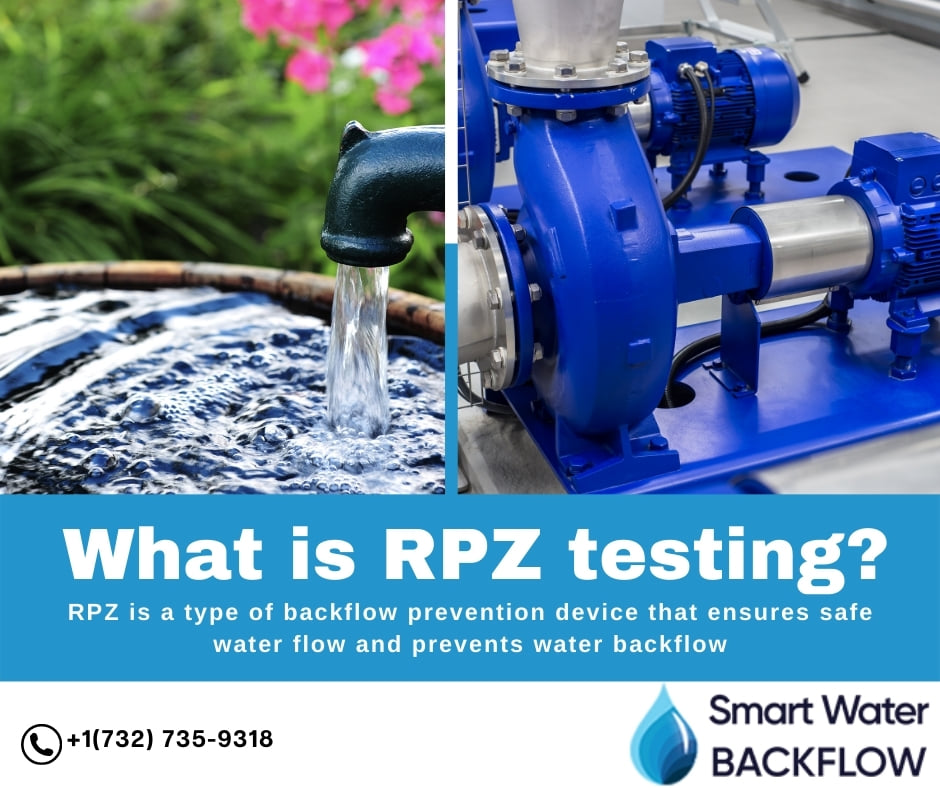RPZ valves- what is it and why is it better?

You may have heard the term RPZ testing in plumbing but need clarification on what it is and its purpose. Installing an RPZ valve will ensure that your water is free from impurities and is clean and safe enough to drink. Every city that operates a public water supply must undergo annual backflow testing and prevention. Failing to do so may lead to a fine or cut in the water supply until the process is complete.
RPZ, or Reduced pressure zone, is a backflow preventer device. You get the highest level of safety in the water supply with it. Many municipalities and engineers do RPZ installation at new constructions for backflow prevention.
This blog will explain RPZ valves and why they are better than others.
Purpose of RPZ valve
The purpose of an RPZ valve is to keep infectivity or pollution out of water. The device is installed into the plumbing system, protecting the water supply.
When contaminants like bacteria, sediments and fertilizers mix with water, it becomes dangerous to drink them. It may cause serious health issues and even endanger life at times. Therefore every municipal community makes it compulsory for buildings to do annual backflow testing and backflow prevention installation.
Is RPZ better?
RPZ valves comprise two autonomous check valves that work like a twofold backflow preventer. In addition, they have an in-between relief valve that opens to the air when both check valves ought to come up short. RPZ installation lets you know that the valve is working appropriately.
If you see that your RPZ is not dumping any water out of the relief valve, then it’s working appropriately. But if the relief valve starts leaving or spitting any water, it indicates something is wrong and needs urgent repair.
Backflow preventers let the water course through them in a single bearing; however, they keep water from streaming back through them. A house or business can utilize all the water it needs; however, it won’t be permitted into the water supply when it has gone through the backflow preventer.
An RPZ gives the best degree of security since it has an implicit help valve, which will open up and empty any back flowing water.
Where are RPZ valves mostly installed?
They are primarily installed in the following places:
Huge boilers- When the pressure inside the huge broiler gets excessively high, it can cause backflow danger by pushing the dirty water inside into the perfect water framework.
Water system frameworks- This incorporates broad yard sprinkler frameworks. Backflow from water system frameworks is risky in light of manures and grass synthetics like pesticides. Backflow preventers are commonly installed in buildings where clean water cross-connects with any of the following installations:
Fire concealment system- A fire concealment system can likewise make pressure contrasts and siphoning impacts that prompt backflow.
Do I want a RPZ valve in my home?
Mainly, business constructions use backflow prevention devices; however, a few homes may require one. One of the most widely recognized explanations behind a private backflow preventer establishment is a home sprinkler framework that cross-interfaces with the drinking water framework.
There are other types of backflow preventer devices as well. They all have different uses and benefits. Be it whatever, according to your requirement, it is necessary to do a backflow prevention device installation.
Leave a Reply